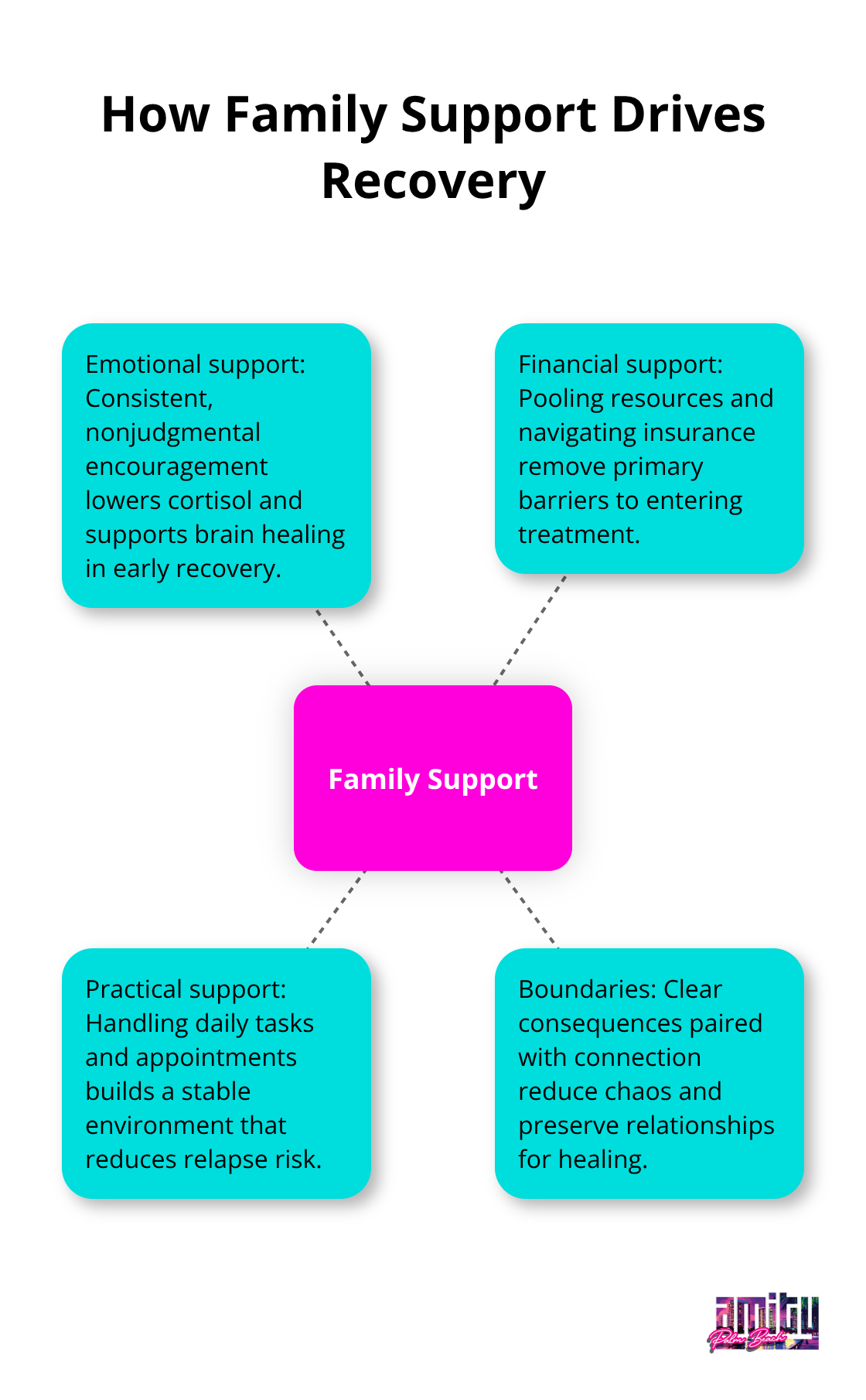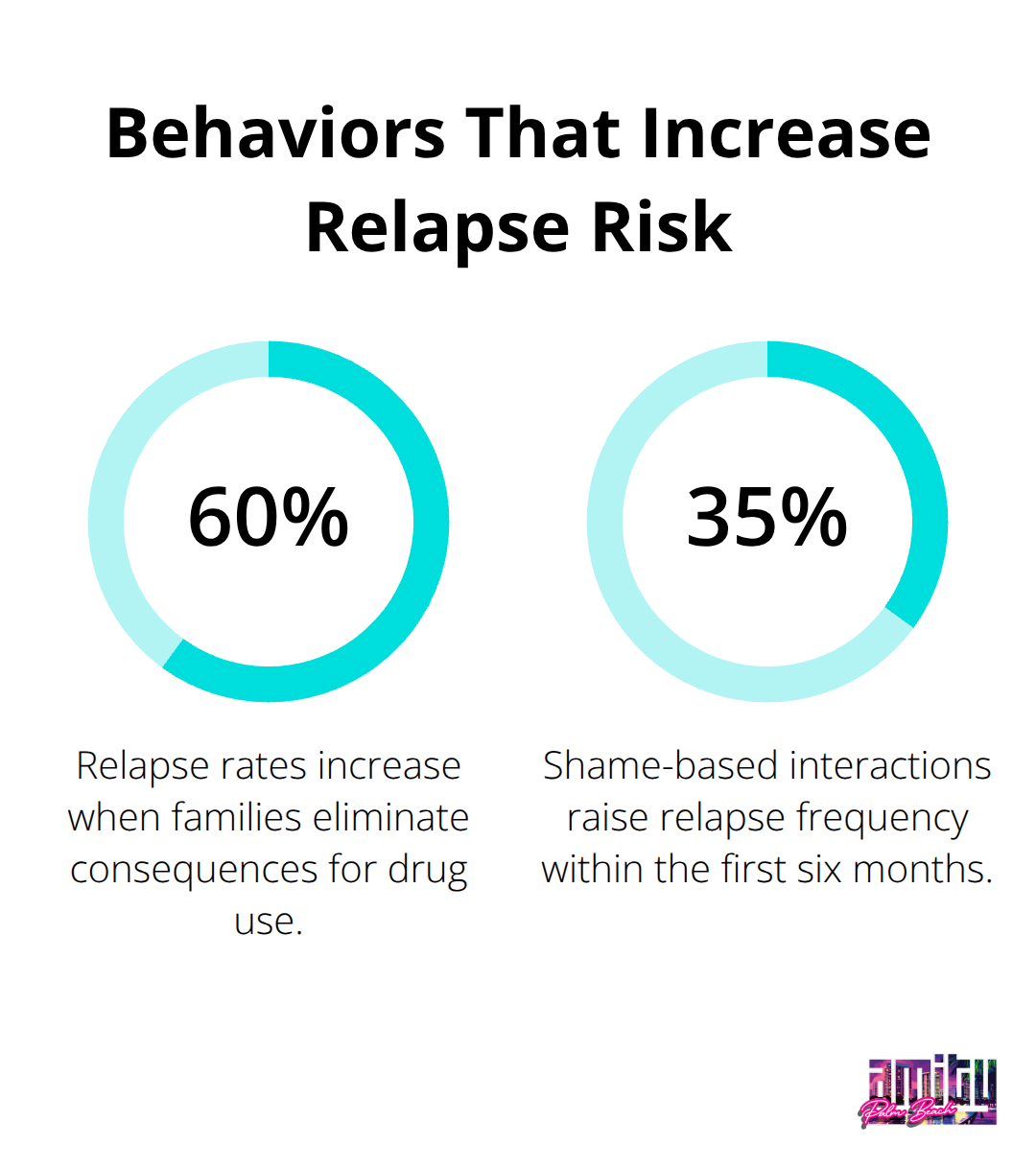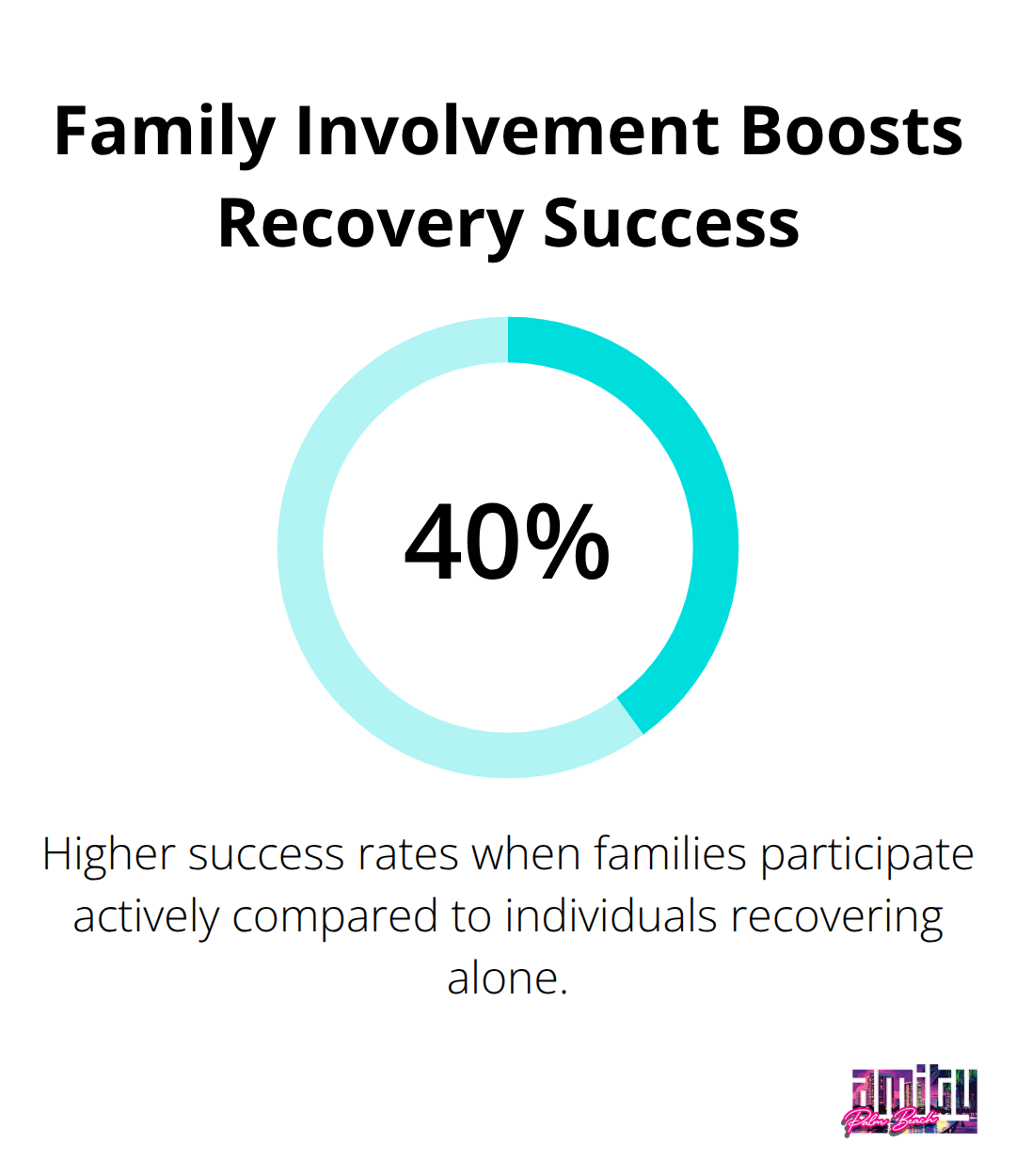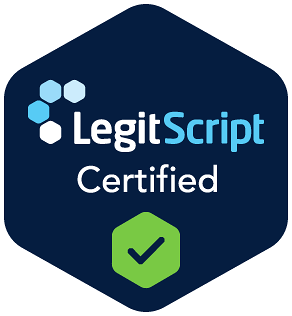Family members hold tremendous power in shaping addiction recovery outcomes. Research shows that patients with strong family involvement achieve 40% higher success rates compared to those recovering alone.
The importance of family support in addiction recovery extends far beyond emotional encouragement. We at Amity Palm Beach have witnessed how proper family engagement transforms treatment from an individual struggle into a collective healing journey.
Why Family Dynamics Make or Break Recovery
Family dynamics create the foundation that determines whether addiction treatment succeeds or fails. Research shows that drugs of abuse alter the brain’s structure and function, resulting in changes that persist long after drug use has ceased, which may explain why individuals with actively involved families demonstrate better outcomes in recovery. These findings reflect a simple truth: recovery happens within relationships, not in isolation.
Emotional Support Accelerates the Healing Process
Emotional reinforcement from family members directly accelerates the neurological healing process during early recovery. When family members provide consistent encouragement without judgment, cortisol levels drop significantly in recovering individuals. This allows the brain to repair addiction-related damage more effectively. This emotional stability creates the mental space needed for therapeutic work to take root. Family members who learn to communicate with empathy rather than frustration become active participants in rewiring their loved one’s stress response patterns.
Financial Support Removes Treatment Barriers
The average cost of comprehensive addiction treatment ranges from $30,000 to $60,000, making family financial support often the difference between getting help and continuing to suffer. Research examining barriers to substance abuse and mental health treatment reveals that families who pool resources or navigate insurance coverage together remove primary obstacles that prevent people from seeking help. Beyond direct costs, family assistance with transportation, childcare, and work arrangements eliminates practical barriers that derail recovery attempts. When families commit financially to treatment, they also invest emotionally in the outcome, creating accountability that individual motivation alone cannot sustain.
Practical Support Creates Stability
Family members who handle daily responsibilities create the stable environment necessary for recovery success. They manage household tasks, coordinate medical appointments, and maintain family routines while their loved one focuses on treatment. This practical foundation prevents the chaos that often triggers relapse during vulnerable early recovery periods.

Breaking dysfunctional patterns within the family system helps prevent the cycle of addiction from continuing to future generations.
Understanding these dynamics sets the stage for families to take specific, actionable steps that maximize their positive impact on recovery outcomes.
What Makes Family Support Actually Work
Families who treat addiction as a brain disease rather than a moral failure create the foundation for successful addiction recovery. The National Institute on Drug Abuse confirms that addiction fundamentally alters brain structure and function, which means family members must approach their loved one with the same compassion they would show someone with diabetes or heart disease. This medical understanding eliminates blame and shame and replaces destructive emotions with practical support strategies.
Education Changes Everything
Family members who complete addiction education programs increase their loved one’s treatment completion rates according to the Substance Abuse and Mental Health Services Administration. These programs teach families to recognize withdrawal symptoms, understand triggers, and respond appropriately to cravings. Most importantly, educated families learn the difference between support and enablement. They discover that direct money transfers to someone in early recovery often fuel relapse, while payment of treatment bills or coverage of basic needs removes barriers to healing. Professional addiction treatment programs integrate family education as a standard component because informed families become powerful allies in long-term recovery success.
Boundaries Save Lives
Firm boundaries combined with emotional connection require specific skills that families must learn and practice. Successful families establish clear consequences for drug use while they keep communication lines open for recovery discussions. They refuse to provide money, housing, or other resources when active addiction continues, but they immediately offer support when their loved one seeks treatment. This approach eliminates the chaos that addiction creates while it preserves relationships for future healing. Family therapy sessions teach these boundary techniques through role-play exercises and real-world scenarios that prepare families for difficult conversations and decisions.
Communication Skills Transform Relationships
Effective communication patterns replace the dysfunction that addiction creates within family systems. Families learn to express concerns without accusations (using “I” statements instead of “you” statements) and to listen without immediate judgment or advice. These skills prevent the defensive reactions that shut down honest conversations about recovery progress or setbacks. Training in active listening techniques helps family members understand the emotional struggles their loved one faces without taking responsibility for solving every problem.
However, even well-intentioned families can unknowingly sabotage recovery efforts through common mistakes that actually perpetuate addiction cycles.
What Family Mistakes Sabotage Recovery
Even families with the best intentions make critical errors that derail their loved one’s recovery progress. The most damaging mistake involves families who continue to provide money, housing, or resources when active addiction persists. Research from the National Institute on Drug Abuse shows that families who eliminate consequences for drug use see relapse rates increase by 60% compared to families who maintain firm boundaries. This enablement creates a safety net that removes the motivation to change while it perpetuates destructive cycles.

Financial Enablement Prevents Rock Bottom
Families who pay rent, cover legal fees, or provide cash to someone actively using drugs remove the natural consequences that motivate people to seek addiction treatment. Families often justify these payments as compassionate acts, but they actually extend the addiction timeline by months or years. Studies demonstrate that substance use disorder treatment saves $4 in health care costs and $7 in criminal justice costs for every dollar spent. Stop all direct financial support during active addiction periods. Instead, offer to pay treatment centers directly or cover specific recovery-related expenses like therapy sessions.
Emotional Reactions Create Shame Cycles
Anger, tears, and guilt-inducing conversations trigger shame responses that drive people deeper into addiction rather than toward recovery. When family members react with dramatic emotions to relapse news or drug-related incidents, they create additional psychological pressure that often leads to increased substance use. Clinical data shows that shame-based interactions increase relapse frequency by 35% within the first six months of recovery attempts (particularly when combined with financial enabling behaviors). Replace emotional outbursts with calm, factual conversations about consequences and treatment options.
Inconsistent Messages Undermine Progress
Families who alternate between harsh punishment and complete forgiveness create confusion that prevents lasting behavior change. One parent who enforces boundaries while another provides money or excuses sends mixed signals that enable continued drug use. Recovery requires consistent expectations from all family members, or the person in addiction will naturally gravitate toward the most permissive family member. Establish unified family rules about consequences for drug use and support for recovery efforts. These consistent boundaries force individuals to confront their addiction rather than manipulate family dynamics to avoid treatment.
Final Thoughts
Family support transforms addiction recovery outcomes in measurable ways. Families who participate actively in treatment programs help their loved ones achieve success rates that exceed individual recovery attempts by 40%. This improvement comes from the emotional stability, practical assistance, and accountability that engaged families provide throughout the healing process.

Professional guidance transforms well-meaning family members into effective recovery allies. Treatment centers integrate family education and therapy into their comprehensive programs, teaching relatives how to set boundaries, communicate effectively, and avoid behaviors that perpetuate addiction cycles. These skills prevent common mistakes that sabotage recovery efforts and help families understand the importance of family support in addiction recovery.
Recovery extends beyond the individual to heal entire family systems. When families replace dysfunction with healthy communication patterns, they create environments where sustained sobriety becomes possible. The financial investment families make in professional addiction treatment pays dividends through restored relationships, eliminated legal costs, and prevented medical emergencies (while families who commit to the recovery process together emerge stronger than before addiction disrupted their lives).




